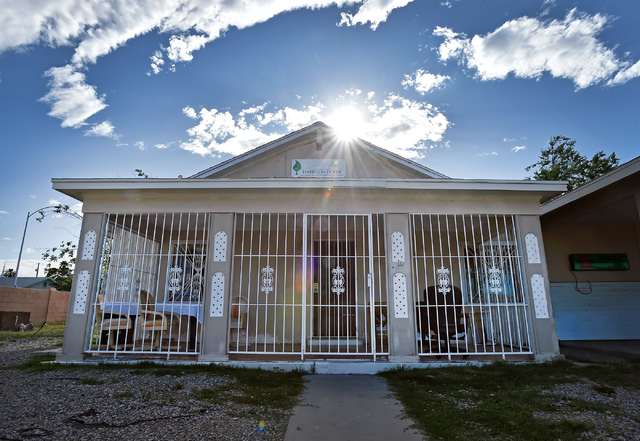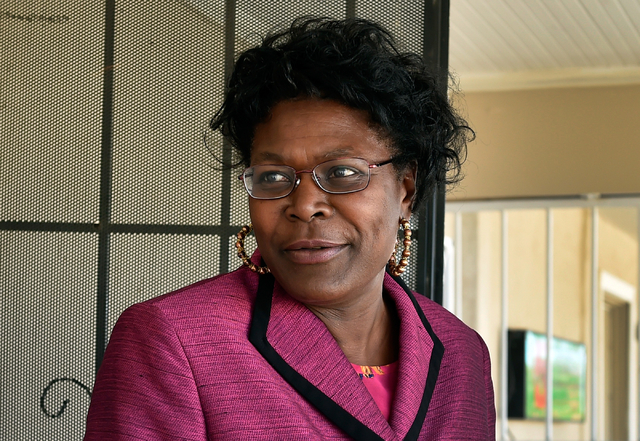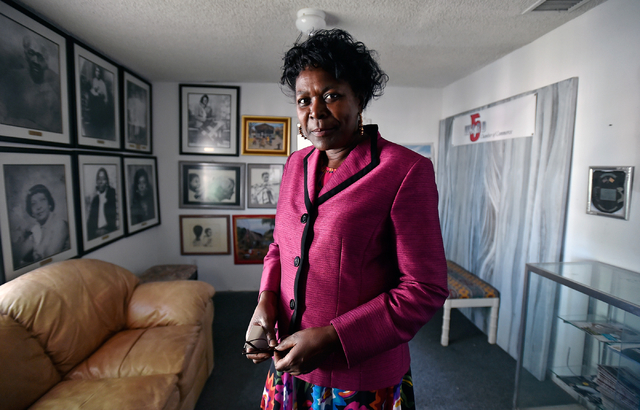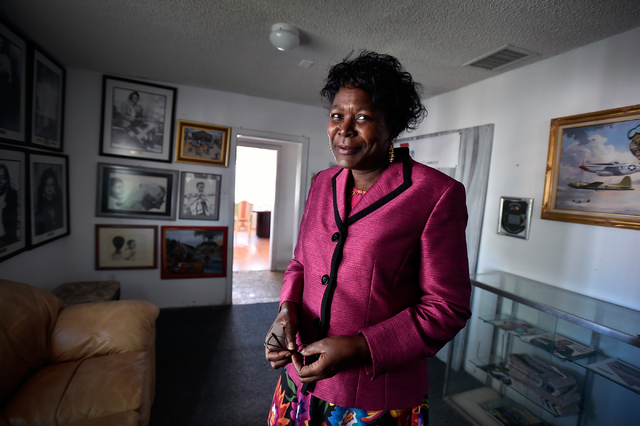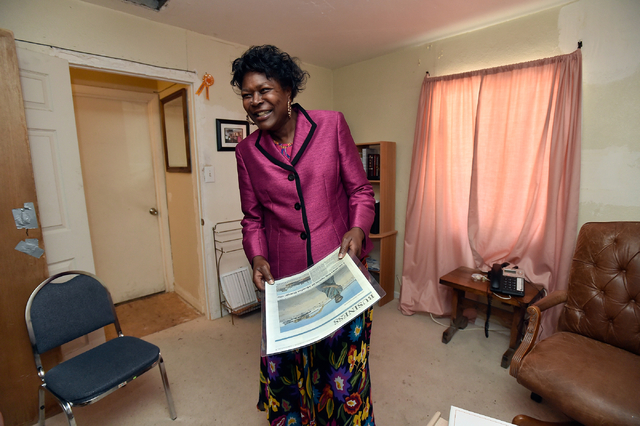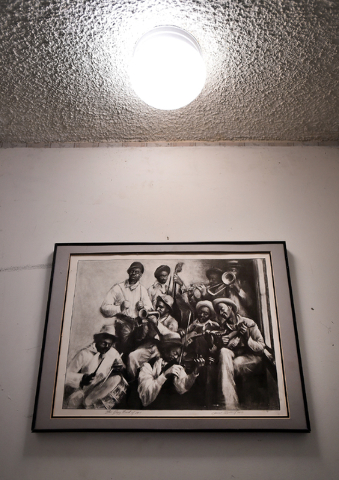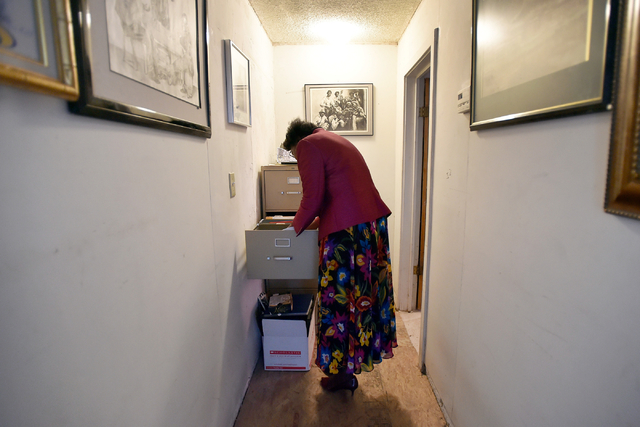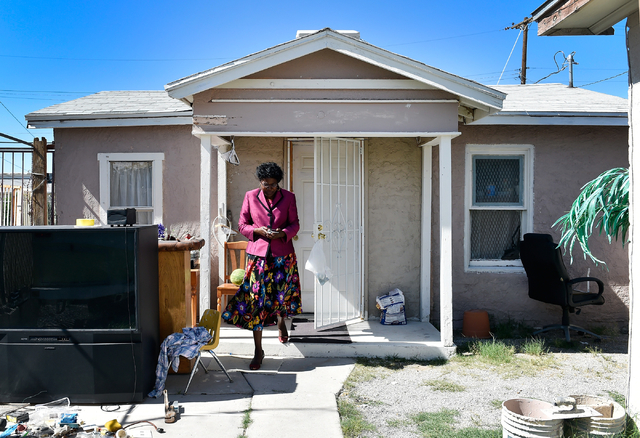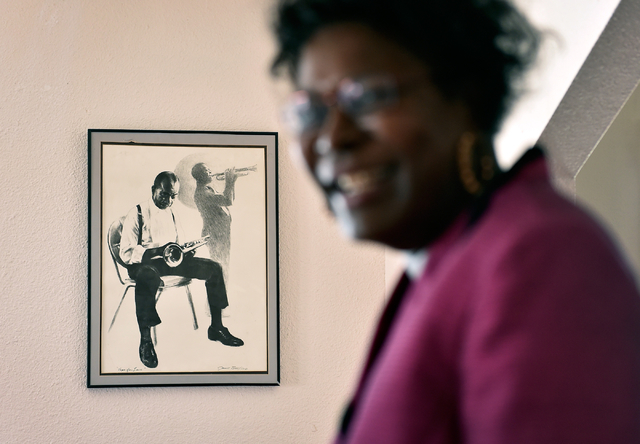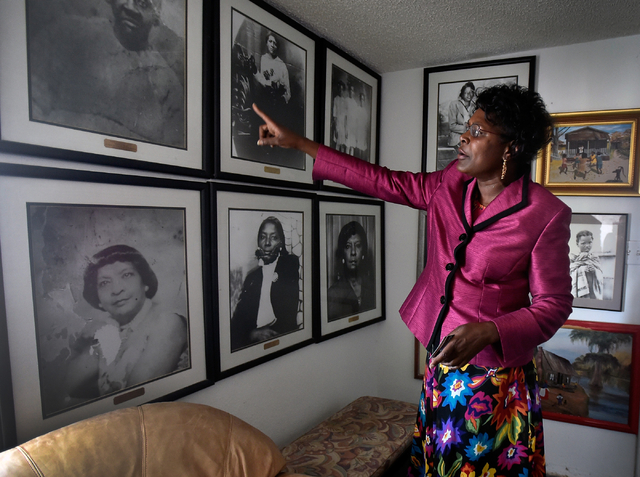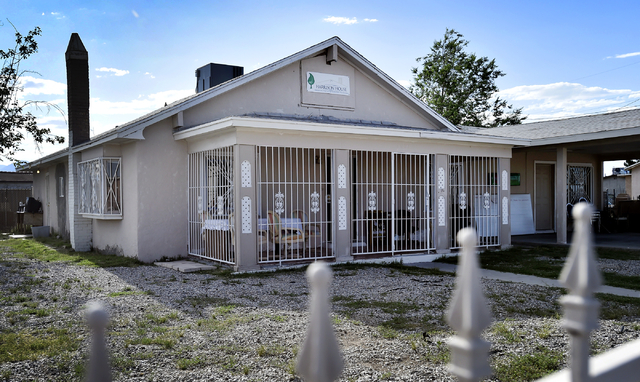Segregation-era guest house in Las Vegas wins national historic status
When segregation barred black entertainers like Pearl Bailey, Nat King Cole and Sammy Davis Jr. from staying at the Las Vegas hotels where they performed, Genevieve Harrison offered them a safe place to rest their famous heads.
Throughout the 1940s and 1950s, Harrison rented rooms in her house on F Street, north of downtown, to everyone from well-known performers to everyday people just traveling through Nevada or trying to establish residency to qualify for a divorce.
On Friday, the National Park Service added Harrison’s Guest House to the National Register of Historic Places.
Katherine Duncan has been working to preserve the house and its history since 2009. She could barely contain her excitement when she got word of the new designation Friday afternoon.
“They’ve decided we’re federally important? Wonderful!” she exclaimed over the phone. “I can’t wait to park this car so I can jump out and shout.”
During a tour of the house a short time later, Duncan said the nonprofit group in charge of the property decided just last week to develop it as a museum dedicated to black history.
Landing on the nation’s official list of preservation-worthy properties should help the group as it applies for grant money to fix up the place. Both the house and the neighborhood surrounding it have seen better days. Several houses on the block have boarded-up windows and scars from recent fires.
Harrison established the boarding house in 1942, when racial segregation was in full effect across much of the nation and black people had few places where they were welcome to stay the night while on the road.
“She had a prosperous business, and I’ve heard she charged exorbitant prices,” Duncan said.
Such boarding houses began to lose their importance as the civil rights movement grew and a few hotels and motels began to appear in the historically black Westside neighborhood. The most famous among them was the integrated Moulin Rouge Hotel, which was featured on the cover of “Life” magazine but only operated for about six months in 1955. The hotel was the site of an historic meeting in 1960 that led to an agreement to end segregation of Strip hotels.
Harrison kept her guest house going until her death in 1957, when her sister, Agatha Wilson, took over and ran the business until at least 1960, the year segregation practices began to fade in the valley.
According to the Nevada State Historic Preservation Office, Harrison’s Guest House stands as the only known surviving example of a boarding house for blacks in Las Vegas from this era.
It was added to both the City of Las Vegas’ Historic Property Register and the Nevada State Register of Historic Places in 2014.
Duncan said the property is open for tours from 10 a.m. to 4 p.m. Monday through Friday or by appointment.
She is both president of the 5th Ward Chamber of Commerce, which owns the house, and executive director of the Harrison House nonprofit group, which is working to turn it into museum and cultural center. She is also living at the house to keep it safe until it can be properly secured and restored.
“I’m not going to leave it unattended,” Duncan said. “I’m sitting on this egg until it hatches.”
Contact Henry Brean at hbrean@reviewjournal.com or 702-383-0350. Find@RefriedBrean on Twitter.



